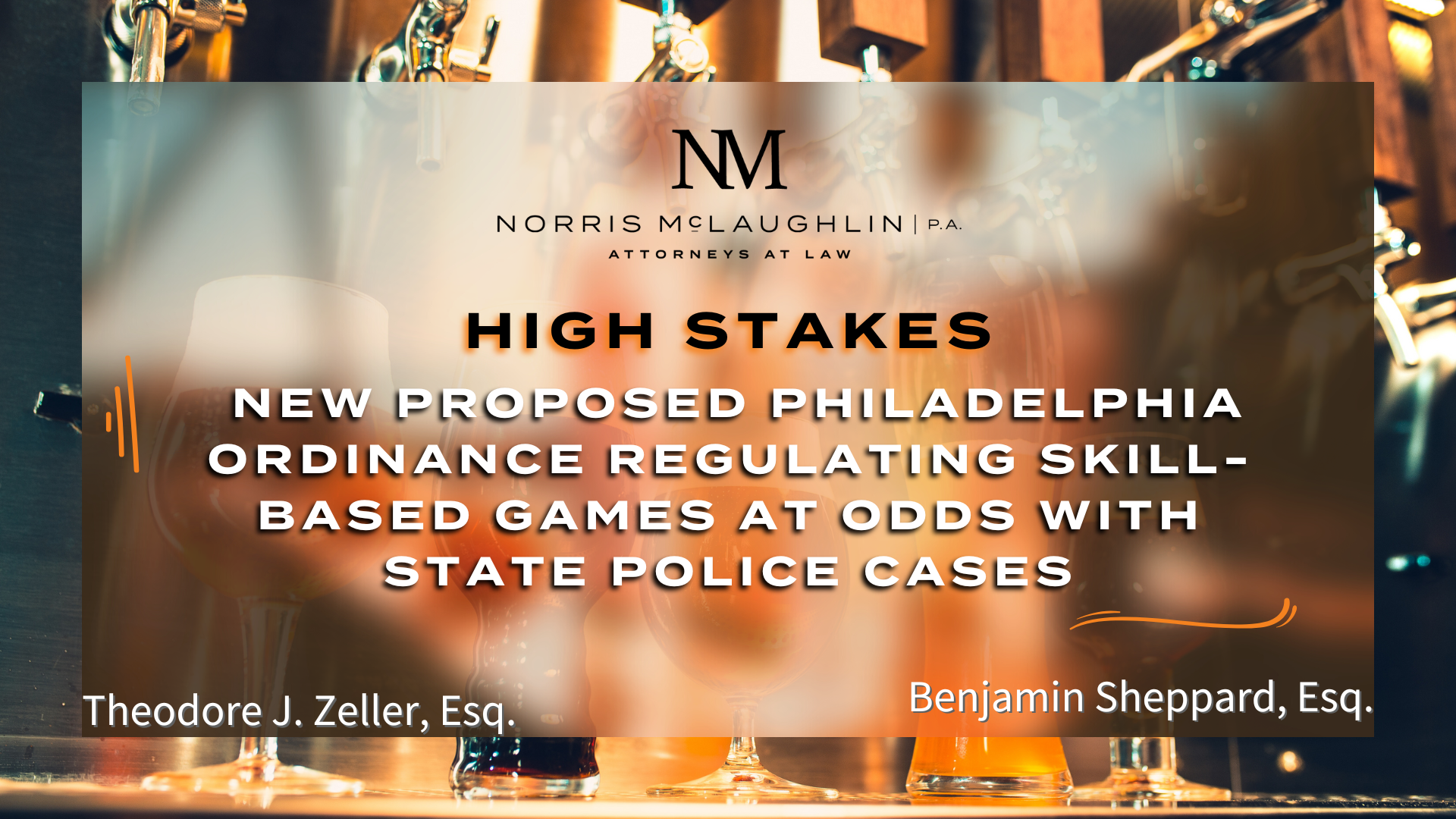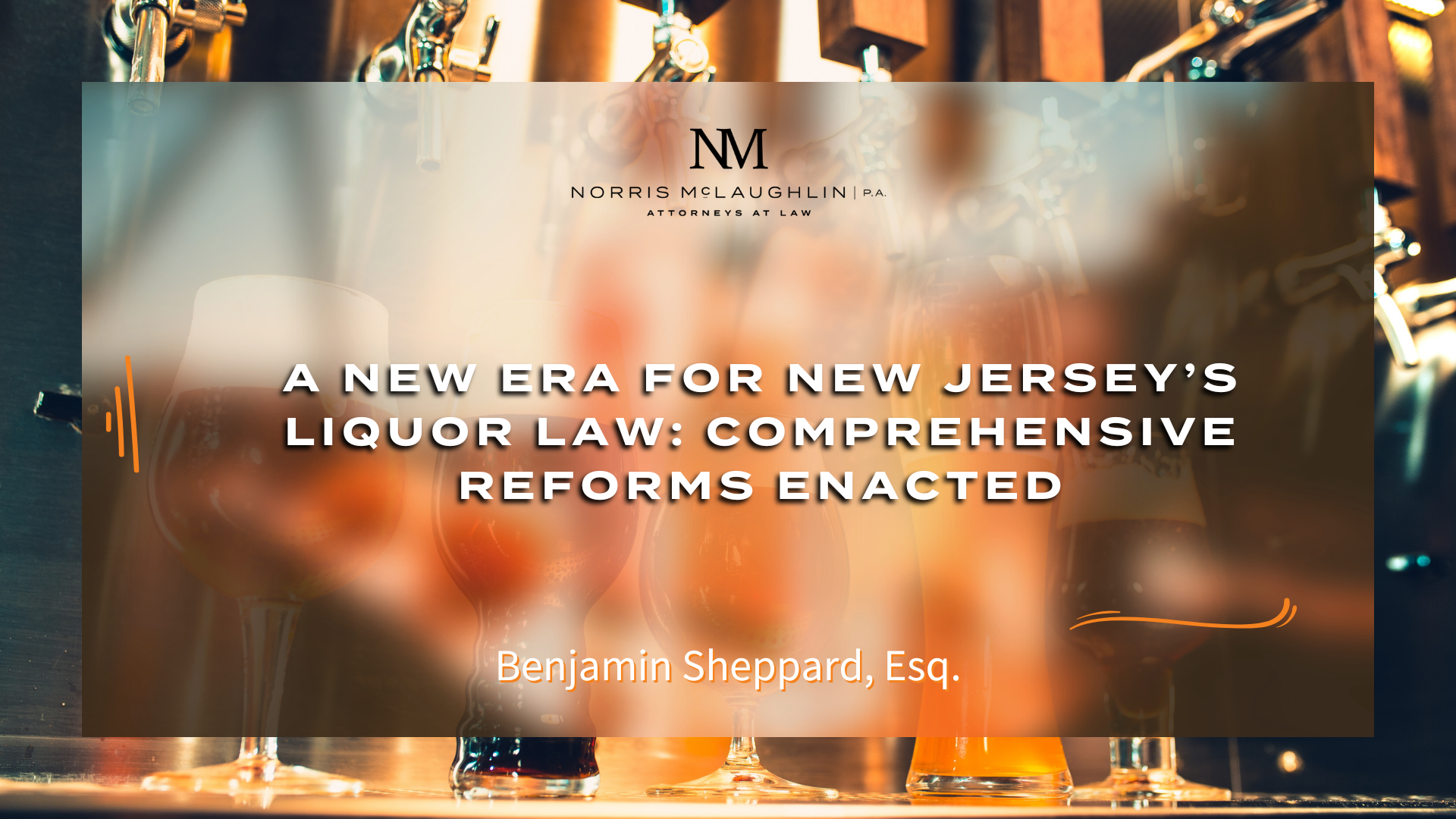For information regarding national and state liquor law matters or general manufacturing and distribution advice, please contact our Liquor Law, Licensing, Manufacturing, and Distribution Practice Group: Liquor Law Department Chair Theodore J. Zeller III, Esquire (tzeller@norris-law.com); David C. Berger, Esquire (dberger@norris-law.com) for Pennsylvania and New Jersey retail and manufacturing licensing; or contact our offices at 610-391-1800.
Pennsylvania Liquor Control Board Announces Tenth Zombie Restaurant Liquor License Auction

The Pennsylvania Liquor Control Board has announced the tenth restaurant liquor license auction, which is permitted under Act 39 of 2016. These auctions are for “zombie licenses” that have been expired and in possession of the Pa.L.C.B. dating back to the year 2000.
In this round of the zombie license auction, the Pa.L.C.B. is auctioning off 25 licenses from 25 counties.
The newly announced auction will feature one license each from the following counties: Armstrong, Beaver, Berks, Blair, Bradford, Cameron, Carbon, Clearfield, Clinton, Crawford, Dauphin, Delaware, Erie, Greene, Indiana, Lebanon, Monroe, Montgomery, Northampton, Philadelphia, Schuylkill, Somerset, Washington, Wayne, and Westmoreland.
Similar to the previous auctions, this round will be through a sealed-bid process. Bids for the available licenses are due on March 16, 2020, at noon. The bids will be opened, and the winners of the auction will be determined on March 19, 2020.
The minimum bid for each license is $25,000. The bid must be accompanied by a surety check in the amount of $5,000 or 5% of the bid amount, whichever is higher, to ensure the payment of the bid price, which must be a cashier or certified check.
The highest bidder will be given the ability to file a license transfer application with the Pa.L.C.B. within six months of winning. However, if the winner’s payment is not received by the Pa.L.C.B. within two weeks of winning, the winning bidder will lose the chance to file the transfer application. If the highest bidder fails to pay, the Pa.L.C.B. will give the second-highest bidder the chance to pay its bid amount and, thereafter, six months to file the transfer application.
If the winning bidder would like to utilize the license in a municipality other than the municipality where the license is currently located, it will have to complete the inter-municipal transfer process and gain approval from the receiving municipality prior to transferring the license. All of this must be completed within the six months winning bidders are entitled to file the transfer application, or the winning bidder will lose its opportunity to transfer the license (and forfeit its surety check unless the Pa.L.C.B. determines it was not the winning bidder’s fault for missing the deadline).
In the recent auctions, the results and bidding were starkly different than in previous auctions.
We documented the results of a recent auction on this blog in a post titled “Pennsylvania Liquor Control Board’s Ninth Restaurant License Auction: Grocery, Convenience, and Wal-Mart Win Big.” As always, in being a sealed-bid auction, you will never know if you are the lucky low bidder until the end. Due to that, if you are seriously interested in acquiring one of the available licenses, we would recommend following the steps in the blog post linked below.
Previously, we published a blog post titled “Pennsylvania Zombie Liquor License Auction: Keys to Making a Successful Bid,” which documents our process of making a successful bid for a zombie license. Based on the advice in that blog post, we look forward to assisting current and new clients in this zombie license auction.
If you wish to submit a bid in the Pa.L.C.B. liquor license auction or have any questions about this post, please contact me at mandersen@norris-law.com or 484-765-2307.




